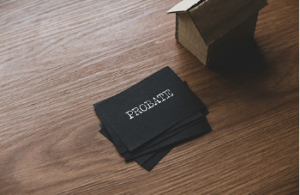The conveyancing process will involve a contract of sale, professionally drawn and contains necessary disclosures and certifications about the property. This contract can be used to make an offer to the seller, who may accept or commence negotiations. Once the offer has been accepted, the property conveyancing process will begin. It can take four to twelve weeks to complete, but it can be shorter or longer than this, depending on the amount of time it takes.
Contract of sale
 A contract of sale is an agreement between a seller and a buyer concerning the sale of a property. This document is legally binding and is exchanged by both parties. The contract binds the purchaser and seller to a specific time and obligations. A contract of sale for a home conveyancing transaction should be carefully scrutinised before exchanging it. If you are unsure how to proceed, ask a solicitor to review it.
A contract of sale is an agreement between a seller and a buyer concerning the sale of a property. This document is legally binding and is exchanged by both parties. The contract binds the purchaser and seller to a specific time and obligations. A contract of sale for a home conveyancing transaction should be carefully scrutinised before exchanging it. If you are unsure how to proceed, ask a solicitor to review it.
Once the contract is prepared, you should select a conveyancer. A conveyancer can act as a sounding board and legal adviser during the process. It would help if you also considered whether you likely need a solicitor to carry out the transaction. Ultimately, a conveyancer should be your first choice for this work—the time required for the contract to be signed on the complexity of the transaction and the solicitor. For more information, visit homeconveyanceradelaide.com.au.
Searches
Conveyancing searches are mandatory if you are buying a property for mortgage purposes. They confirm that the seller is the legal owner of the property. You can request additional details from the solicitor if the search shows anomalies that you may have to explain further. You can ask the conveyancing Adelaide conveyancer to obtain further information for a particular property. Some searches reveal various information, from contaminated land to hazardous use sites.
Property searches can be compulsory or voluntary, depending on the circumstances of your purchase. These are essential when you intend to take out a mortgage to purchase a property. If your lender requires them, they will tell your conveyancer which searches you need. However, if you are buying cash, you don’t need to order searches. In such cases, saving money on searches is not recommended. But if you are concerned about your credit history, you can cut costs on your conveyancer by ordering some searches yourself.
Payment
When buying or selling a house, payments for home conveyancing in Adelaide differ depending on the property type. For leasehold properties, the conveyancer will charge a supplement and other disbursements. When purchasing a leasehold property, the conveyancer will read the lease, summarising the essential obligations and rights of the leaseholder. These may include issues surrounding building service charges or permitted renovations. Further, if the buyer buys a council home, the conveyancer will charge for additional work that is not required in other property types. For more information, visit homeconveyanceradelaide.com.au.
Once the buyer has agreed to buy a property, the conveyancer must communicate with the landlord, which can be either a freeholder or a management company representing a group of leaseholders. Dealing with the landlord is necessary to speed up the process, but if the seller refuses to pay for the conveyancer’s services, he will incur a PS300 fee to complete the Notice of Assignment. Hiring a second conveyancer who will review the first report may also be necessary.
Completion date
During the final stages of the home conveyancing process, the completion date is the date on which all the documents are signed and the funds transferred from seller to buyer. This date also serves as the possession date, or the day when the buyer is legally permitted to move into the property. Possession takes place the day after the completion date, around midday. Therefore, it is essential to contact the solicitor as soon as you receive the keys to the property.
Adjustment phase
The Adjustment phase of home conveyancing involves the negotiation of outgoings on the property. These include recurring costs such as council rates, water rates, and security bonds. In addition, some properties are rented out regularly for regular income. In such cases, the seller may be required to make adjustments to ensure that the buyer receives the bond in full. Here’s a brief overview of what happens during this phase of home conveyancing.